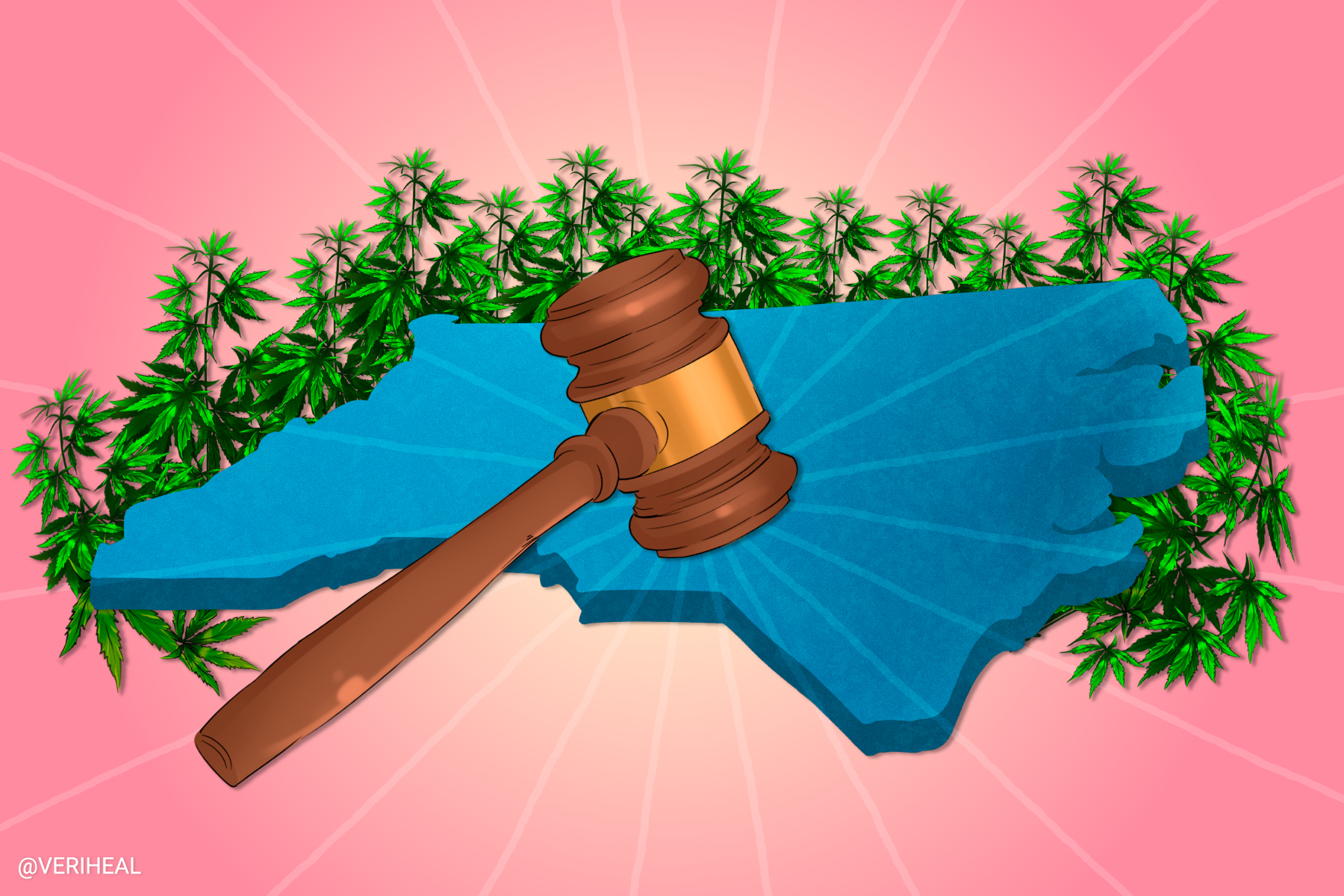Economic opportunity abounds in North Carolina, where, on June 30, the State Senate cleared bipartisan legislation to establish a robust medical cannabis system. Moving forward, Senate Bill 711 will face the Senate Finance Committee, before being reviewed by members of the Finance, Health Care, and Rules and Operations committees. If SB 711 is given the green light, it will move to a Senate floor vote.
The measure, according to the bill’s sponsor, Sen. Bill Rabon, provides “some compassionate care for specific ailments, to those people in North Carolina that need it, and to make them law-abiding citizens if they want to be.”
“We need to compassionately care for our fellow man in any way that we can,” added the Brunswick County Republican, whose passion for legal medical cannabis stems from his cancer diagnosis.
Not only could North Carolina’s medical cannabis bill assist cancer patients who suffer from pain and nausea but also, people with a broad spectrum of diseases and illnesses. The bill, which was approved by the majority of judiciary committee members, would develop a patient, manufacturing, licensing, and sales system for the plant’s use. Currently, North Carolina is among 14 U.S. states that do not legally allow medical cannabis use. However, the leadership council of the North Carolina-based Eastern Band of Cherokee Indians made serious headway in May, when the council agreed to legalize small amounts of pharmaceutical-grade cannabis for use on tribal territory.
Overview of the Medical Cannabis Bill
Under the terms of SB 711, “qualified patients” who are legal residents of the state and are in possession of a written doctor’s/physician’s recommendation would be legally allowed to obtain the plant in pharmaceutical form. Patient registrations would be assessed via an online portal, which would be utilized by law enforcement officials and cannabis centers.
Why You Should Get Your Medical Marijuana Card
Veriheal has satisfied millions of patients nationwide by giving them access to these benefits
- Larger purchase limits
- Peace of mind
- Enhanced legal protection
- Access to higher potency strains
- Save up to 25% on cannabis purchases
- Skip the line at the dispensary
To qualify, patients must receive a diagnosis for one of the “debilitating” medical conditions featured in the bill; which include (but are not limited to) AIDS, ALS, cancer, epilepsy, multiple sclerosis (MS), and post-traumatic stress disorder (PTSD). In the event of SB 711 being adopted by lawmakers, the list of qualifying conditions could be expanded by a 13-member Medical Cannabis Advisory Board.
Some other key facets of the bill are as follows:
- SB 711 strives to establish a 9-member Medical Cannabis Production Commission that would be responsible for overseeing distribution among medical cannabis centers. The commission would “establish a system that is well regulated, includes a seed-to-sale tracking system, and is financially viable for suppliers to ensure the highest quality cannabis and cannabis-infused products for patients.”
- The NC Department of Health and Human Services would be tasked with establishing “standards for and license up to five independent testing laboratories to test cannabis and cannabis-infused products that are to be sold in the State.”
- A “North Carolina Cannabis Research Program” would be formed on behalf of The University of North Carolina. The program’s primary goal is to gather “objective, scientific research regarding the administration of cannabis or cannabis-infused products as part of medical treatment.”
- Supplier license applications would be evaluated by the North Carolina Department of Health and Human Services. Once evaluated, 20 favorable applications would be submitted to the Commission for review.
- “No more than 10 supplier licenses” would be issued By the Commission, and each chosen supplier could “own and operate no more than four medical cannabis centers”; not exceeding 40 statewide facilities.
- North Carolina’s medical cannabis bill includes elements pertaining to violation penalties. For example, sentencing would apply to individuals who commit a crime inside a medical cannabis center or production facility. Harsher penalties would also be imposed against people who engage in drug trafficking activities involving medical cannabis.
Current Cannabis Law in North Carolina
The existing cannabis law in North Carolina stipulates that residents who are caught in possession of more than half an ounce – no more than 1.5 ounces – of the plant will be charged with a class 1 misdemeanor. This violation is punishable by up to 45 days behind bars and a $200 fine.
A total of 3,422 cannabis-related charges and 1,909 cannabis convictions were recorded in North Carolina during 2019. Approximately 70% of convicted individuals were of color.
In terms of cultivation, it is legal to produce industrial hemp and products that have been enriched with chemicals containing low levels of THC (tetrahydrocannabinol).
Based on public polling results that were published in June by The News & Observer, 75 percent of North Carolina voters are supportive of medical cannabis, as well as two-thirds of GOP voters.
Author, Share & Comments















